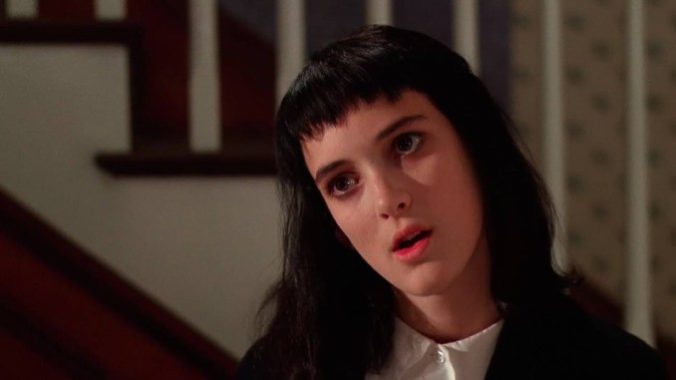Beetlejuice Convincingly Explores the Specter of Impending Adulthood, 35 Years Later

Comedy writer Jesse McLaren once summarized the arc of Tim Burton’s filmography with a single tweet: “The first half of Tim Burton’s career are movies that shouldn’t work but do and the second half of Tim Burton’s career are movies that should work but don’t.” This assertion remains an apt critical perspective, but it also identifies the engine which emboldens Burton’s storytelling. His mode of filmmaking thrives under the framework of the underdog. For better or worse, he is always retreating to the outlook he adopted in the early stage of his career, shrinking into the outcast teenager living in the plasticized, pastel-drenched suburbs of California.
Unfortunately, this mode of understanding the world has a shelf life. Burton’s preoccupation with the outsider has diminishing returns, especially for a now-established industry figure, who has to overcome a shrinking set of hurdles for each new project. Beetlejuice remains the best, most complete distillation of Burton’s ideology, a perfect overlap of artistic impulse and cultural context, the kind of circumstances that propels a career forward for decades to come.
In March of 1988, cinema was largely populated by recycled material. Biloxi Blues—one of Mike Nichols’ stage to screen adaptations, rightly consigned to the annals of history—had come out the week before Beetlejuice, as had Police Academy 5: Assignment: Miami Beach. The Beetlejuice script was handed to Burton in the wake of Pee-wee’s Big Adventure and in the leadup to Batman, a genuinely weird mashup of Burton’s preoccupation with death and his distaste for the invasiveness of suburban neighborhoods. But as with all Burton projects, the practical effects uphold a very simple worldview: To be young and precocious in the terrain of adult responsibilities is to be different, and to be different is to be special.
Part of Beetlejuice’s magic trick is achieved in the casting of its Burton analogue. Molly Ringwald, Drew Barrymore and dozens of other famous actresses auditioned for the black tulle-clad protagonist, Lydia Deetz. Instead, Burton went with Winona Ryder, a relative newcomer to the industry whose own experience growing up in California—on the deserted outskirts of Hollywood, carried by the dissonance between a passion for film and an overwhelming shyness—mirrored his own. Burton’s outlook and Ryder’s acting prowess aligned with the only moment in time when they could both reasonably be considered industry outsiders.
-

-

-

-

-

-

-

-

-

-

-

-

-

-

-

-

-

-

-

-

-

-

-

-

-

-

-

-

-

-

-

-

-

-

-

-

-

-

-

-








































